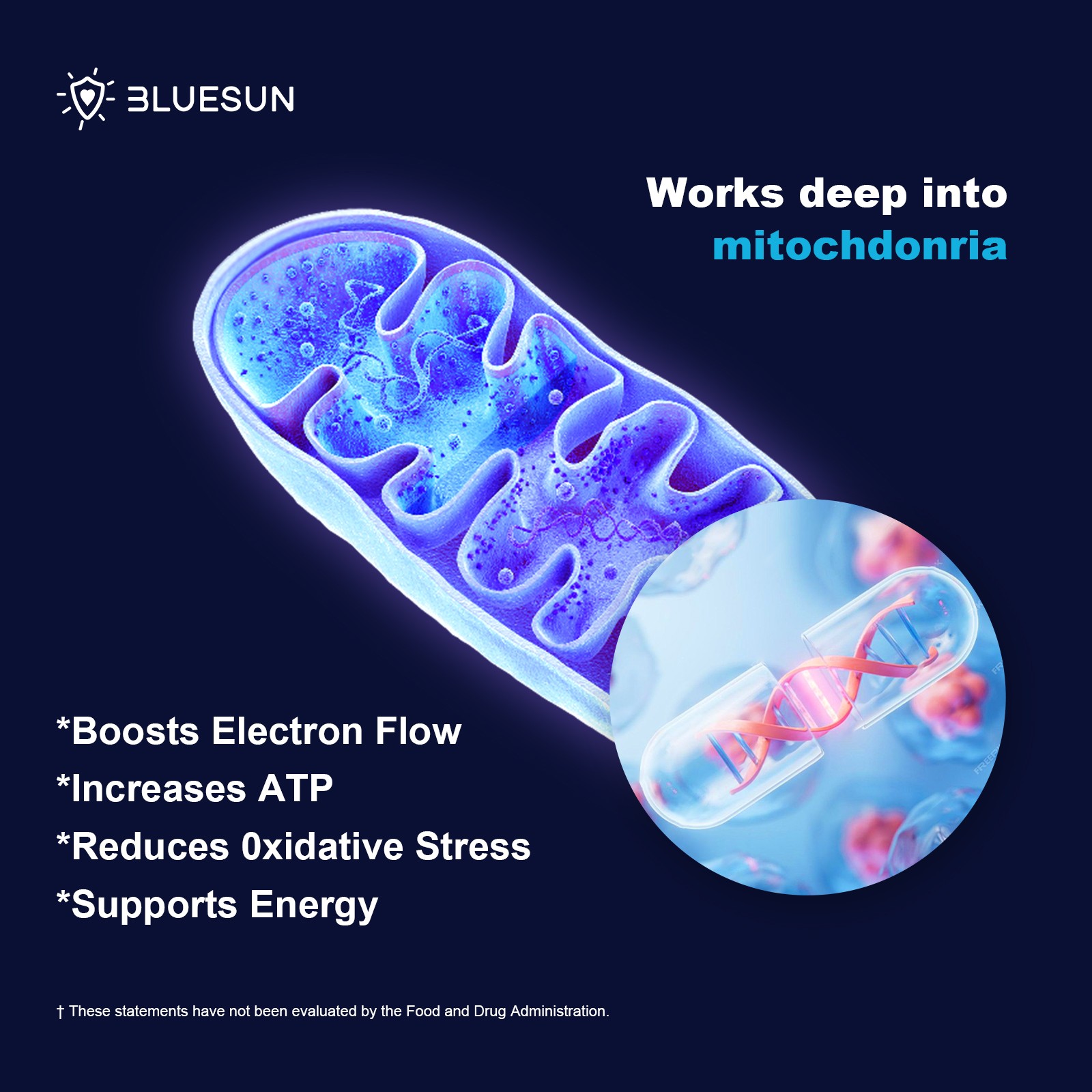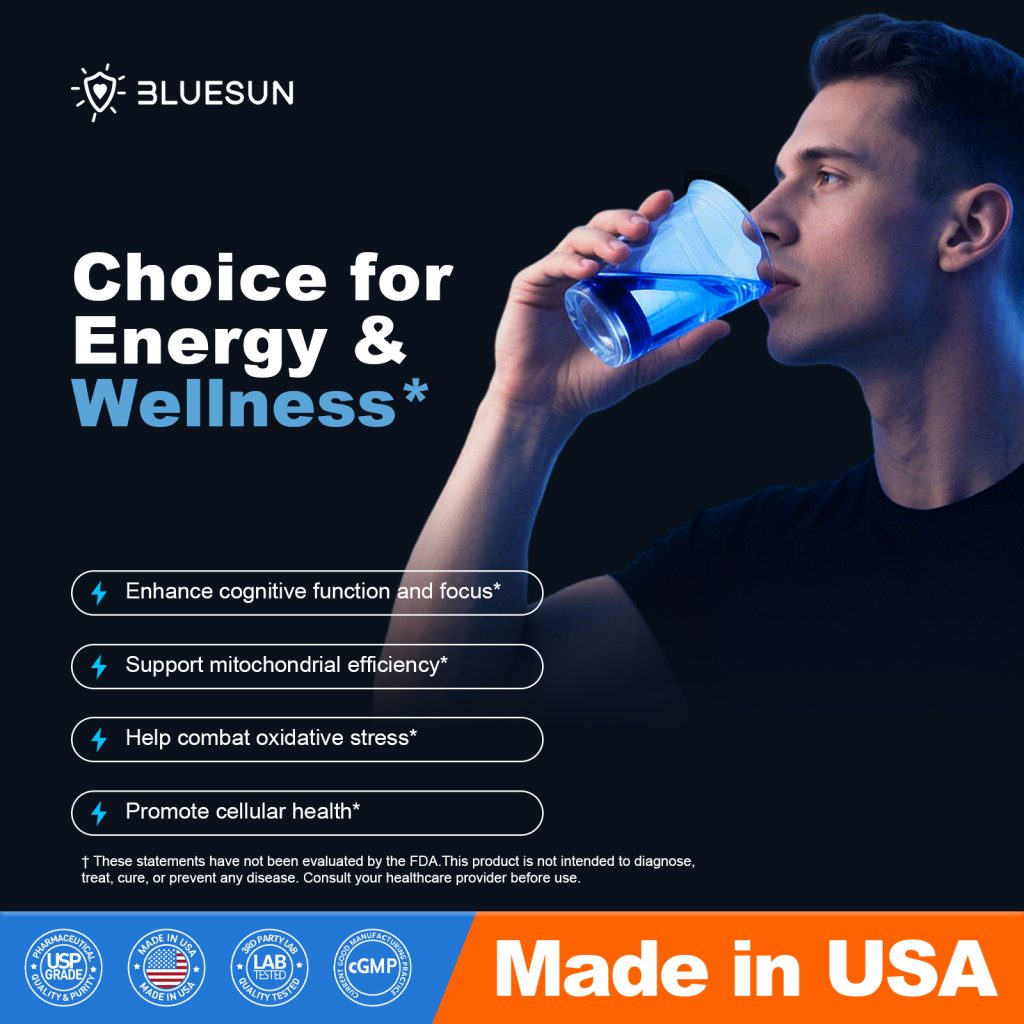Key Points
– Methylene blue has strong scientific support for treating methemoglobinemia and shows promise in areas like cognitive health and mitochondrial function, but human studies are limited.
– Research suggests it may boost cellular energy and protect against oxidative stress, with some animal studies showing memory improvement.
– Safety concerns include interactions with certain medications and risks for people with G6PD deficiency; consult a doctor before use.
Introduction to Methylene Blue
Methylene blue is a compound with a long history in medicine, approved by the FDA for treating methemoglobinemia, a condition where blood can’t carry oxygen properly. Recently, it’s gained attention as a supplement for potential benefits like supporting brain health and energy levels. However, while early research is promising, most studies are on animals or in labs, not humans, so we need more evidence.
Scientific Support
Research shows methylene blue enhances mitochondrial function, which is key for cellular energy, according to a 2017 study in The FASEB Journal (The FASEB Journal, 2017). Animal studies, like one in Scientific Reports (2016), suggest it may improve memory by increasing brain oxygen use (Scientific Reports, 2016). It also shows antioxidant properties, potentially protecting cells, as noted in Redox Biology (2014) (Redox Biology, 2014). However, human trials are scarce, and benefits aren’t yet proven for everyday use.
Safety and Limitations
While generally safe in low doses, methylene blue can interact with SSRIs, causing serotonin syndrome, and is risky for those with G6PD deficiency, who may develop hemolytic anemia. Always consult a healthcare provider before using it.
Surprising Finding
It’s surprising that despite its medical history, methylene blue’s supplement use is mostly backed by animal studies, not human research, showing a gap between lab findings and real-world application.
Comprehensive Analysis of Methylene Blue’s Scientific Support
Methylene blue, a synthetic compound with a rich history in medical and industrial applications, has recently garnered attention as a dietary supplement due to its potential health benefits. This analysis explores the scientific research supporting its use, its limitations, and safety considerations, providing a detailed overview for consumers and health enthusiasts.
Historical and Medical Context
Methylene blue was first synthesized in 1876 as a textile dye but soon found medical uses, notably in treating malaria and later methemoglobinemia. The U.S. Food and Drug Administration (FDA) has approved it for intravenous administration in cases of methemoglobinemia, a condition where hemoglobin cannot effectively release oxygen to tissues. This approval underscores its established role in medicine, with a mechanism involving acting as a redox agent to convert methemoglobin back to hemoglobin, thereby improving oxygen delivery.
Potential Health Benefits
Beyond its medical applications, methylene blue is being investigated for its potential to support various aspects of health, particularly in the realms of cognitive function, cellular energy production, and antioxidant activity.
Mitochondrial Function
One of the most promising areas of research is methylene blue’s impact on mitochondrial function, the process by which cells generate energy. A study published in The FASEB Journal in 2017 found that low doses of methylene blue can enhance mitochondrial respiration, potentially improving cellular energy production (The FASEB Journal, 2017). This is significant because mitochondria are critical for energy-demanding tissues like the brain and muscles, leading scientists to hypothesize that methylene blue might support overall vitality. However, these findings are primarily from in vitro studies, and human data is limited.
Cognitive Health and Neuroprotection
Methylene blue has also been studied for its potential cognitive benefits, particularly in animal models. A 2016 study in Scientific Reports demonstrated that methylene blue improved memory and cognitive performance in mice by increasing brain oxygen consumption and reducing oxidative stress (Scientific Reports, 2016). Additionally, a 2010 study in Neurobiology of Aging explored its ability to inhibit tau protein aggregation, a process associated with neurodegenerative diseases like Alzheimer’s disease (Neurobiology of Aging, 2010). These results have fueled interest in methylene blue as a cognitive health supplement, though clinical trials in humans remain scarce and inconclusive, highlighting the need for further research.
Antioxidant Properties
Methylene blue exhibits antioxidant-like effects, which may protect cells from oxidative damage. Research published in Redox Biology in 2014 noted that methylene blue can cycle between oxidized and reduced states, neutralizing free radicals, a factor linked to aging and various diseases (Redox Biology, 2014). This property suggests potential benefits for cellular health, but again, the extent of these effects in human supplement use requires more investigation.
Current Research Status
Despite these promising findings, the scientific support for methylene blue as a supplement is tempered by significant limitations. Most studies have been conducted in vitro (in test tubes) or on animal models, with a notable lack of large-scale, well-controlled human clinical trials. The effective doses in these studies often differ from what is practical or safe for over-the-counter use, and the translation of lab results to human benefits is not yet established. This gap between preliminary research and human application is a critical consideration for consumers.
Safety and Precautions
Safety is a paramount concern when considering methylene blue as a supplement. While it is generally regarded as safe in low doses, it can have side effects and interactions with certain medications. For instance, it can cause a blue discoloration of the skin and urine, which is temporary and harmless. More seriously, methylene blue can interact with selective serotonin reuptake inhibitors (SSRIs), potentially leading to serotonin syndrome, a condition that can be life-threatening. Individuals with glucose-6-phosphate dehydrogenase (G6PD) deficiency should avoid methylene blue due to the risk of hemolytic anemia, where red blood cells are destroyed. Given these risks, consulting a healthcare professional before use is essential to ensure safety and appropriateness for individual health conditions.
Surprising Finding
One surprising aspect of the research is the significant reliance on animal and in vitro studies for methylene blue’s supplemental benefits, despite its long history in medicine. This gap highlights the challenge of translating lab findings into practical, human-applicable outcomes, underscoring the need for more robust clinical trials.
Conclusion
Methylene blue is a fascinating compound with a robust scientific foundation in medicine and emerging potential as a health supplement. While research suggests benefits in mitochondrial function, cognitive health, and antioxidant activity, the current evidence is primarily from non-human studies, and human trials are limited. At [Your Brand Name], we are committed to providing high-quality, USP-grade methylene blue supplements, crafted with transparency and safety in mind. We encourage our customers to stay informed and to discuss any supplement use with their healthcare provider to ensure it aligns with their health needs.
Disclaimer: These statements have not been evaluated by the FDA. This product is not intended to diagnose, treat, cure, or prevent any disease. Consult your healthcare provider before use.
Key Citations
– The FASEB Journal, 2017, Study on methylene blue and mitochondrial function
– Scientific Reports, 2016, Study on methylene blue and cognitive function in animal models
– Neurobiology of Aging, 2010, Study on methylene blue and tau protein aggregation
– Redox Biology, 2014, Study on methylene blue as an antioxidant


